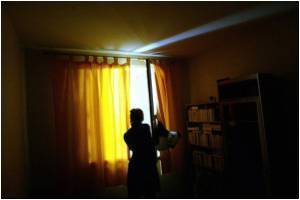A new research has revealed that emotions, particularly those provoked by negative events, can trigger inaccurate memories - and the effect is worse, not better, when the witness is an adult.

The study shows that experiences that stimulate negative emotions are very bad for the accuracy of children's memories, but even worse for the accuracy of adults.
"We found something different than what leading theories of emotional memory in adults say," Brainerd said.
"By manipulating the emotional content of word lists, we found that materials that had negative emotional content in fact produced the highest levels of false memory," he said.
Children ages 7 and 11, and young adults ages 18 to 23, were shown lists of closely related emotional words - such as pain, cut, ouch, cry and injury.
In each list some related words - such as hurt- were left out. When asked to recognize words from the list, respondents would often mistakenly remember hurt as one of the words. These mistakes allowed researchers to determine the level of emotion-induced false memory at each age.
"In the great preponderance of legal cases, the only evidence that's determinative is what people say happened," said Brainerd.
"In the law, you're dealing with events that are emotional. So the question of whether or not the emotional content of experiences that you're trying to remember screws up your memory is a really big question," he said.
The researchers, also co-authored the 2005 book 'The Science of False Memory.'
The findings were published in the Journal of Experimental Child Psychology.
Source-ANI
 MEDINDIA
MEDINDIA



 Email
Email





